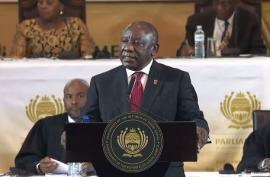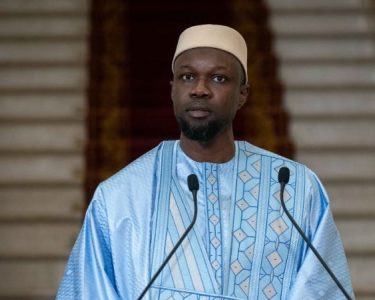
CAPE TOWN, May 29 (NNN-SANEWS) — President Cyril Ramaphosa has acknowledged the severe pressure South African households face due to the rising cost of living, while assuring Parliament that government is taking comprehensive steps to ease the burden on citizens, particularly the most vulnerable.
The President was responding to questions for oral reply by members of the National Assembly on Tuesday, with economic growth and the cost of living among the issues up for deliberation.
President Ramaphosa was asked whether his administration plans to introduce additional measures, beyond economic growth and job creation, to shield South Africans from soaring household expenses, especially given that the average food basket has surged nearly 40% above the rate of inflation in recent years.
In response, the President said tackling poverty and the cost of living was one of the three strategic priorities of the GNU and forms a central pillar of the Medium-Term Development Plan.
“South Africa’s macroeconomic policy framework has been a key lever for shielding the poor from the high cost of living. The framework includes an inflation target, which has helped to keep prices low and stable and has been important in reducing average prices.
“Food price inflation has fallen quite significantly from 12.7% at the end of 2022 to 2.2% in March 2025. Headline inflation, which is a measure of the general cost of living, has also declined. It averages 4.4% in 2024, and inflation has even moderated further to 2.7% in March 2025,” President Ramaphosa said.
President Ramaphosa said food staples, such as maize meal, brown bread, rice, samp, milk, eggs and other basic foodstuffs remain exempt from VAT, to help to cushion lower-income households.
He added that the fiscal policy has been redistributive, prioritising poor and low-income households. Government spends around 60% of its revenue on the social wage, which includes spending on social grants on education and health.
President Ramaphosa highlighted the recent budget announcement in which social grants were increased at a rate higher than inflation.
“The provision of free basic services, such as water and electricity, for indigent households is an essential measure in reducing the high cost of living. The bulk of local government’s equitable share in this year’s budget goes towards a free basic services package to over 11 million households in our country.
“This package of free municipal services continues to be a key tool for reducing poverty and inequality and raising living standards and facilitating access to greater economic opportunities for many of our people.
“It is essential that municipalities ensure that this support reaches all the households that need it,” the President said.
The President added that another measure to mitigate the impact of the high costs of basic necessities included a network of over 3000 centre-based food programmes established by the Department of Social Development to provide nutritious food to poor and vulnerable people.
“These centres provide comprehensive services that include psychosocial support, welfare and developmental interventions, while addressing the immediate need of providing access to nutritious food on a daily basis,” the President said.
Government is also working to address some of the structural factors that contribute to the cost of living, including the impact of apartheid spatial planning.
“We are therefore reforming our housing policies to provide affordable housing closer to economic centres as well as improving the capacity of commuter rail services, making it less expensive for people to get to work or to access services,” President Ramaphosa said. — NNN-SANEWS






